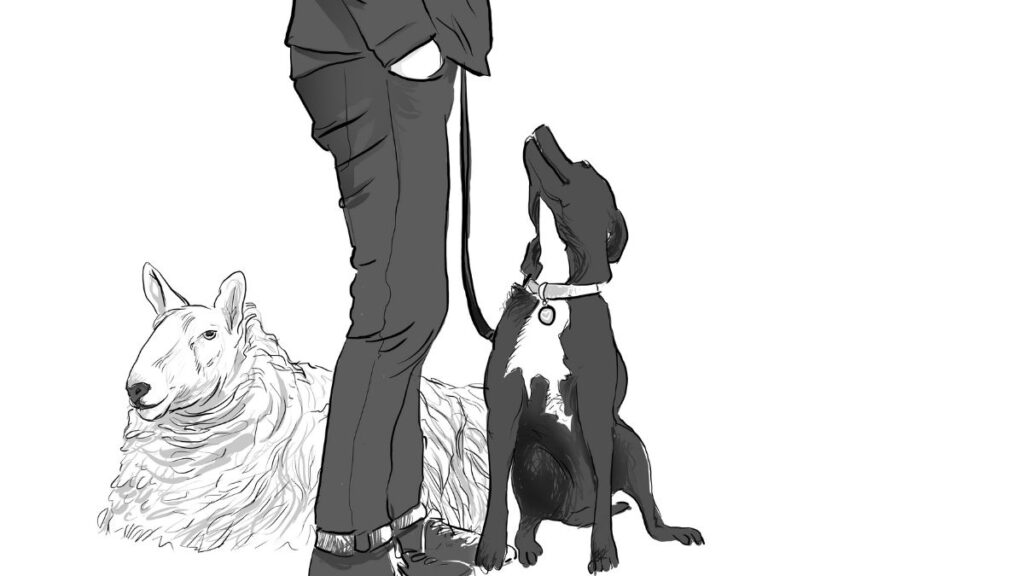Zoofilia, a term that evokes strong reactions and emotions, is often shrouded in misunderstanding. Many people are quick to judge without fully grasping the complexity behind this controversial subject. While it may seem like an extreme deviation from social norms, delving into the psychology of zoofilia reveals layers that challenge our perceptions. This exploration takes us on a journey through history, examines human-animal relationships, and unravels the intricate motives driving those who identify with this phenomenon. Prepare to step outside conventional boundaries as we navigate the multifaceted world of zoofilia—where fascination meets moral dilemmas and understanding can pave new pathways for discussion.
The History and Evolution of Zoofilia
Zoofilia has a long and complex history, with roots tracing back to ancient civilizations. In some cultures, animals were revered as sacred beings, while others viewed them solely as companions or resources.
Throughout the ages, literature and art have depicted human-animal relationships in various forms. The Greeks and Romans often included such themes in their myths and stories. These narratives shaped societal perceptions of zoophilia over time.
As societies evolved, so did attitudes toward animal welfare. Movements advocating for the rights of animals emerged during the 19th century. This shift prompted a reevaluation of how humans interacted with other species.
In modern times, discussions surrounding zoofilia are influenced by ethics, psychology, and law. The internet has also played a significant role in bringing these topics into public discourse. As knowledge expands, so does the understanding of this controversial subject matter.
Understanding the Psychology behind Zoofilia
Understanding the psychology behind zoofilia involves delving into complex emotions and behaviors. Many individuals may develop this attraction due to early experiences or emotional trauma.
Attachment theory is often explored in these cases, suggesting that disrupted relationships during formative years could lead to unhealthy bonds with animals instead of humans.
Additionally, a fascination with power dynamics plays a role. Some may find comfort in the perceived control they have over an animal, which can fill voids left by human interactions.
Moreover, societal taboos surrounding zoofilia contribute to feelings of isolation and shame for those who experience it. This secrecy can enhance the allure but also complicate psychological well-being.
Exploring these layers reveals how multifaceted human attraction can be—often straying far from conventional norms and sparking debates on morality and ethics within society.
The Controversy Surrounding Zoofilia
Zoofilia sparks intense debate across various platforms. It raises ethical questions that challenge societal norms. Many argue it is a form of animal abuse, while others claim it’s a misunderstood sexual orientation.
Animal rights advocates emphasize the inability of animals to consent. This fundamental argument drives much of the opposition against zoofilia. The concern focuses on exploitation and harm to vulnerable creatures.
Conversely, some individuals within niche communities advocate for awareness and understanding. They believe open discussions can reduce stigma surrounding their feelings without promoting harmful actions.
The media often sensationalizes stories related to zoofilia, fueling negative perceptions. These portrayals contribute to fear and misunderstanding rather than fostering meaningful dialogue about underlying issues.
Public opinion remains deeply divided, reflecting broader attitudes toward sexuality and morality in society today. Such polarization complicates efforts for education or legal reform surrounding this contentious topic.
Effects on the Animal and Human Involved in Zoofilia
Zoofilia has profound effects on both animals and humans. For animals, the consequences can be severe. They often suffer from physical harm, emotional distress, and trauma due to inappropriate interactions. Animals cannot consent, leading to experiences that violate their well-being.
Humans involved in zoofilia may face significant psychological ramifications as well. Individuals might struggle with feelings of shame or isolation due to societal stigma. This can result in mental health issues such as anxiety or depression.
Moreover, relationships with others may deteriorate as a consequence of these tendencies. Trust issues arise when partners discover such behaviors. The individual’s social life could become increasingly limited because of fear of judgment.
Addressing the issue requires understanding its complexities while prioritizing the welfare of all beings involved.
The impact extends beyond immediate actions and affects broader societal perceptions related to animal rights and human behavior.
Legal Implications of Zoofilia
The legal implications surrounding zoofilia vary significantly across different jurisdictions. In many countries, engaging in sexual acts with animals is considered a criminal offense. Laws are often rooted in animal welfare and protection frameworks.
In some regions, the penalties for zoofilia can include hefty fines or imprisonment. These laws reflect society’s growing awareness of animal rights and the need to safeguard vulnerable beings from exploitation.
However, legal definitions of zoofilia aren’t uniform. Some areas may not specifically address it under their statutes, leaving a gray area that complicates enforcement.
Additionally, the stigma associated with this behavior leads to significant social consequences for those accused or convicted. Legal battles can become public spectacles, further ostracizing individuals involved.
As discussions evolve around mental health and ethics related to zoofilia, lawmakers continue to evaluate existing statutes to adapt them accordingly to modern societal standards.
Treatment and Prevention for Individuals with Zoofilia Tendencies
Addressing zoofilia tendencies requires a compassionate and informed approach. Therapy is often the first step. Cognitive-behavioral therapy (CBT) can help individuals understand their feelings and behaviors.
Support groups also play a crucial role. They provide a safe space for sharing experiences without judgment. Connecting with others who face similar challenges fosters understanding and reduces isolation.
Education about animal welfare is essential too. Learning about ethical treatment of animals can reshape perspectives. It emphasizes respect for living beings, helping to curb harmful inclinations.
Medication may be considered in some cases, especially if underlying mental health issues are present. A mental health professional can offer guidance on this front.
Ongoing self-reflection is vital for anyone struggling with these tendencies. Developing awareness helps foster healthier relationships—both with oneself and others.
Conclusion: Shifting Perspectives on Zoofilia
The topic of zoofilia evokes a wide range of emotions and opinions. As society evolves, so do our understandings of complex issues like this one. Increasing awareness about animal welfare is prompting discussions that challenge traditional views.
Many individuals are beginning to see the importance of empathy towards all beings, including animals. This shift in perspective highlights the need for education around human-animal relationships that respects both parties involved.
As we continue to engage with these difficult subjects, it becomes clear that understanding the psychology behind zoofilia can lead to better treatment approaches for those affected by these tendencies. Advocates argue for more resources directed at mental health support rather than stigmatization or criminalization alone.
This ongoing discourse opens pathways for deeper conversations regarding consent—an essential element when considering interactions between humans and animals. It compels us to reflect on our responsibilities as caretakers of other species and prompts critical thought on how we define love and companionship across species lines.
These evolving perspectives encourage societal growth and compassion while underscoring the complexity inherent in human behavior toward animals. It’s an intricate dialogue worth having as we strive for a balance between personal freedoms and ethical considerations surrounding animal rights.






